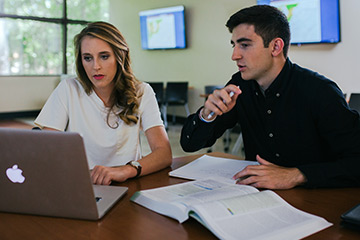French Major | Samford University

Is This Program for Me?
This program is ideal for students seeking to integrate French language skills with professional pursuits in business, law, healthcare, education, international relations, or the arts. Whether you’re a fluent speaker or continuing your French studies, this program offers an immersive experience that connects language learning with global impact.
- Love languages and cultural exchange
- Want to work internationally or in multicultural settings
- Enjoy literature, film, history, and events from the Francophone world
- Are planning for graduate school, teaching, or diplomacy
- Value cross-cultural collaboration and communication
What Will I Learn?

Academic Areas of Focus
- French & Francophone history, film, and literature
- Business and politics in French-speaking contexts
- Religion and philosophy in France
- French in global diplomacy and international development
- Interdisciplinary skills: media, technology, information, and cultural literacy
Skills You’ll Develop
- Advanced speaking, listening, reading, and writing in French
- Cultural adaptability and global collaboration
- Ethical use of authentic sources and digital tools
- Analytical and critical thinking across languages and disciplines
“Our program doesn’t just teach French—it prepares students to live and work as informed, articulate global citizens.” —Mary McCullough, Professor of French

What Makes Us Different?
Contemporary, Global Curriculum
Courses explore French cinema, WWII and memory in literature, Francophone Africa and the Diaspora, and North African literature and identity.
Samford in France
Study abroad at Université Grenoble-Alpes, joining students from over 70 countries in an intensive French immersion experience.
Emphasis on Real-World Application
Coursework and study abroad experiences are designed to build the linguistic, cultural, and professional skills needed to thrive in globally oriented careers.
Faculty Expertise & Mentorship
Faculty hold prestigious grants and awards, including Fulbright and Chevalier honors, and are deeply involved in cultural scholarship and student mentoring.
Career Preparation
Graduation Study Preparation
- Medicine
- Law
- TESOL
- French
- English
- Gender Studies
- Linguistics
Career Opportunities
- Translation and interpretation
- International business or marketing
- K–12 or university-level teaching
- Foreign service, diplomacy, or government
- Nonprofit and missions outreach
- Law, medicine, and public health
- Tourism, hospitality, and cultural consulting
Internship & Fellowship Opportunities
TAPIF (Teaching Assistant Program in France): Alumni regularly earn placements through this competitive program, teaching in French schools.Application Information
Freshman applications for next fall are open.Freshman Early Action applications close November 1st.The freshman first scholarship deadline is December 1st.Transfer applications for the spring semester close Dec. 15.Freshman FAFSA priority and scholarship deadlines are Feb. 15.Decision day is coming! Freshman applications for fall enrollment close May 1st.Transfer applications for fall enrollment close July 1st.Freshman applications for fall enrollment are closed. Applications for next year open August 1st.Transfer applications for fall enrollment are closed. Applications for next year open September 1st.
Cookie Preferences | Privacy Policy | Software Plugins
Microsoft Excel®
Microsoft Power Point®
Microsoft Word®
Adobe Portable Document Format







